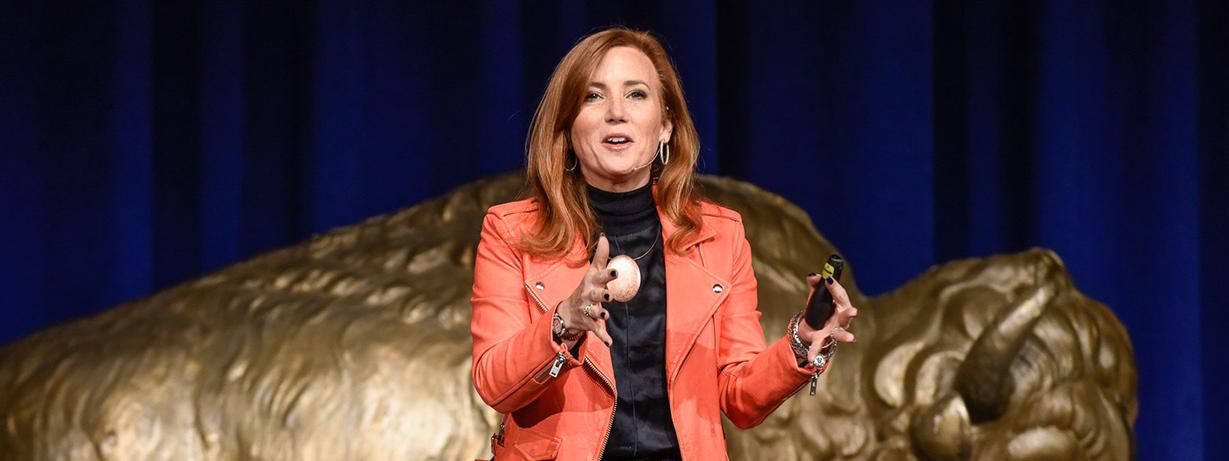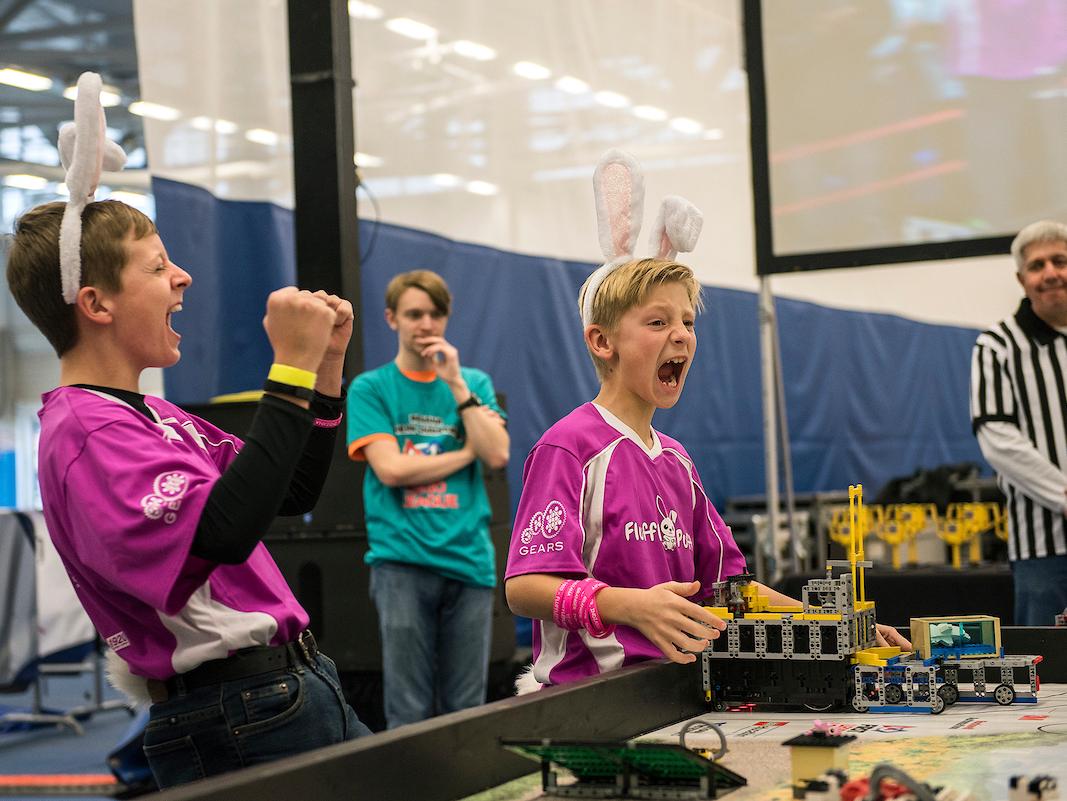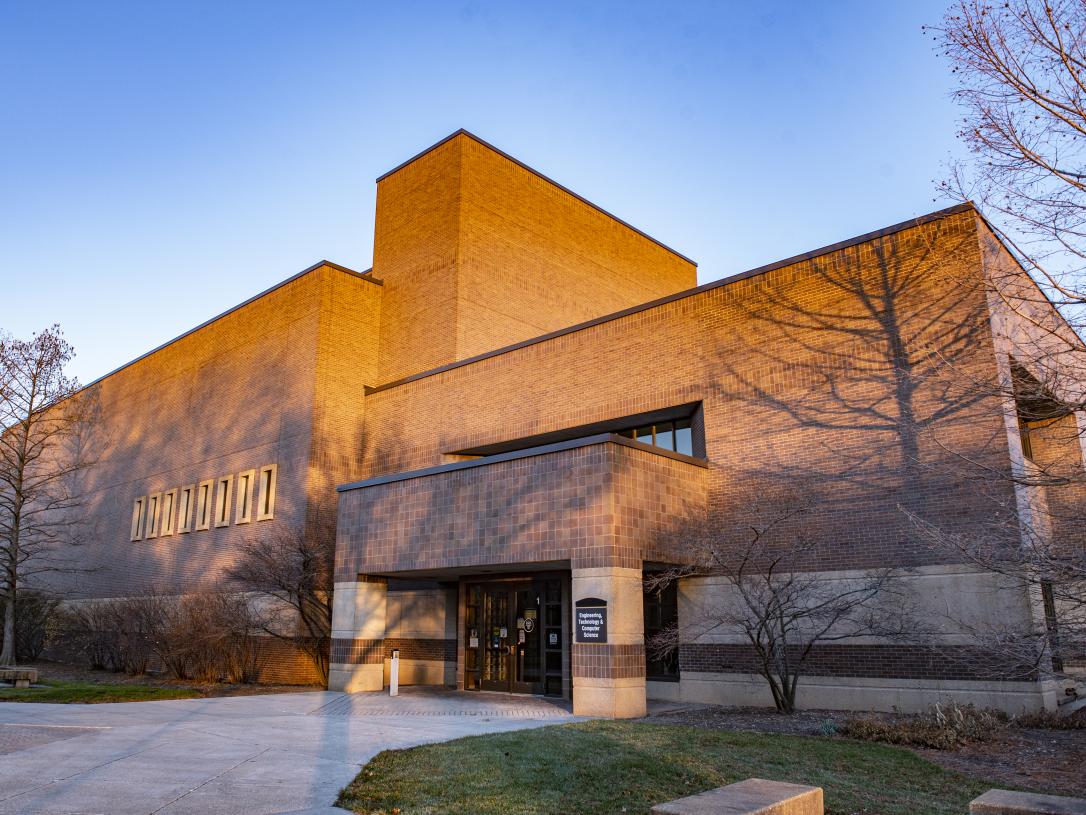
Theresa Payton excited for Omnibus experience
By Blake Sebring
November 1, 2023
Though it may sound odd, one of the world’s leading experts on technology and cybersecurity says she often learns just as much from the audience as they do from her during presentations. Their questions often send the discussions off on fascinating tangents, sort of the way artificial intelligence seems to be branching into all aspects of humanity.
“The Q&A session is dessert for me, my favorite part,” said Theresa Payton. “I find the dialogue to be the nexus of where you can have the biggest impact. I learn so much from the questions I receive on the road.”
Payton, who became the first female White House chief information officer while serving former President George W. Bush, will be the Omnibus Speaker Series presenter on Tuesday in Purdue University Fort Wayne’s Auer Performance Hall. Tickets to the 7:30 p.m. event are free and available through PFW’s Schatzlein Box Office or its online ticketing platform.
“The backdrop for the talk will be around this concept that we have the power to choose our adventure with AI,” Payton said from her Charlotte, North Carolina, home. “What I want to do is talk to the audience about the transformative and innovative energy AI provides—how AI is already demonstrating the power to change how we work and live.”
But in the wrong hands, AI also could be used to weaponize devices and data and could be used to accelerate crime, Payton said, not just cybercrime, but physical crime. She has ideas about how AI needs to be harnessed to make it our digital assistant that safeguards our safety and security. She’ll also address the constant concerns she hears from parents and younger adults who worry their professions might be replaced by AI.
“Humans are often imitated, but never replicated, and it is my belief that AI will never replace what is uniquely human,” Payton said. “Humans have brilliance, empathy, and an essence that cannot be imitated by a computer or a robot. We all know when we’re not really dealing with a human who has real empathy. But at the same time, I don’t want anyone to be so fearful of AI that they allow other humans using AI to out-shine them.”
Payton has been working around computer technology and cyber enhancements since before attending graduate school at the University of Virginia. She says humanity must do a better job understanding and putting limits on AI, which has been unsuccessful with social media.
She loves that people use social media to post cute puppy pictures and keep grandparents connected with their grandchildren, but believes society failed to create the ethical guidelines and regulatory and legal framework around social media and big tech.
“With social media and big tech, we got it so wrong,” Payton said. “I don’t want to repeat those mistakes with generative AI. We have a unique opportunity to get it very right on generative AI, and then turn around and apply the lessons learned and hold big tech and social media accountable.”
When she visits schools, Payton tells students they must do this because her generation did not.
“We thought this would all be figured out by now, but it has not been,” she said. “It’s up to you to lead the way because you are the most current on technology. I love having this opportunity to talk to the next generation of leadership and say, as the baton gets passed to you, here’s what we got right, here’s what we didn’t address, and here’s what needs to be focused on next.”




